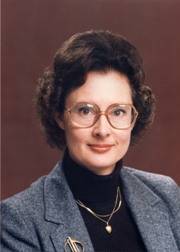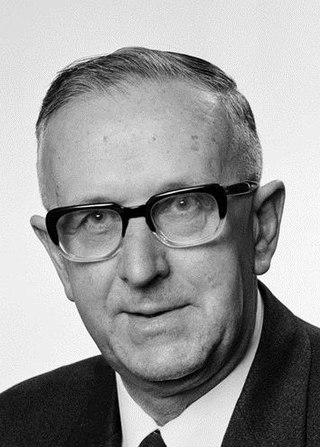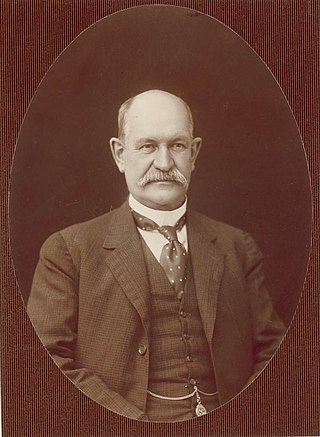
The Democratic Labor Party (DLP) was an Australian political party. The party came into existence following the 1955 ALP split as the Australian Labor Party (Anti-Communist), and was renamed the Democratic Labor Party in 1957. In 1962, the Queensland Labor Party, a breakaway party of the Queensland branch of the Australian Labor Party, became the Queensland branch of the DLP.

Janine Winton Haines, AM was an Australian politician who was a Senator for South Australia from 1977 to 1978 and again from 1981 to 1990. She represented the Australian Democrats, and served as the party's leader from 1986 to 1990, becoming the first female federal parliamentary leader of an Australian political party. She was pivotal in "shaping the Australian Democrats into a powerful political entity that held the balance of power in the Senate".
Peter Hon Jung Wong is a Chinese-born Australian politician. A figure in the Sydney Chinese community and former member of the Liberal Party of Australia, he became concerned over the Liberal Party's refusal to oppose strongly the rise of Pauline Hanson and her One Nation Party, and ultimately went on to found the Unity Party. He served as their leader from 1998 to 1999 and represented the party in the New South Wales Legislative Council from March 1999 until March 2007. Wong was made a Member of the Order of Australia in 1996.

Francis Patrick Vincent McManus, Australian politician, was the last leader of the parliamentary Democratic Labor Party and a prominent figure in Australian politics for 30 years.

The 1961 Australian federal election was held in Australia on 9 December 1961. All 122 seats in the House of Representatives and 31 of the 60 seats in the Senate were up for election. The incumbent Liberal–Country coalition led by Prime Minister Robert Menzies defeated the opposition Labor Party under Arthur Calwell, despite losing the two-party-preferred popular vote. In his first election as Labor leader, Calwell significantly reduced the Coalition's margin, gaining 15 seats to leave the government with only a two-seat majority. This was the first and only time that a Federal Government won a sixth consecutive term in office.

Elections were held on 5 December 1964 to elect members to half of the 60 seats in the Australian Senate. There was no accompanying election to the House of Representatives, as Robert Menzies had called an early House-only election the previous year. As with the previous Senate election, the Coalition held exactly half of the seats in the chamber; the Democratic Labor Party and independent senator Reg Turnbull held the balance of power.

Edward Davis Millen was an Australian journalist and politician who served as the first Minister for Repatriation.
Robert Leslie Woods is an Australian former politician. He was a Liberal Senator for the state of New South Wales in Australia between 1994 and 1997. Woods was previously a Member of the Australian House of Representatives as the Liberal member for Lowe between 1987 and 1993. Woods served as a Parliamentary Secretary to the Minister for Health and Family Services between 1996 and 1997.

John Coates is an Australian retired politician. Born in Melbourne, he was educated at the University of Sydney, after which he became a biochemist at the University of Tasmania. In 1972, he was elected to the Australian House of Representatives as the Labor member for Denison, defeating sitting Liberal MP Robert Solomon. He was defeated by Liberal candidate Michael Hodgman in 1975, but in 1980 returned to politics when he was elected to the Senate. He remained a Senator until he resigned his place on 20 August 1996, six months after the federal election that had removed Labor from power.

James Thomas Walker was an Australian banker and politician. He served as a Senator for New South Wales from 1901 to 1913.

Charles William Oakes was an Australian politician.

Stanley Kerin Amour was an Australian politician. Born in Hamilton, New South Wales, he was educated at Catholic schools before becoming an insurance agent. He served in the military from 1915–1917. In 1937, he was elected to the Australian Senate as a Labor Senator for New South Wales. He was selected largely because his surname began with A, as did the other three candidates, Bill Ashley, John Armstrong and Tom Arthur. After leaving the ALP briefly for the Langite Australian Labor Party (Non-Communist), Amour served in the Senate for over 20 years, retiring in 1965. He died in 1979.

John Archibald McCallum was an Australian school teacher and politician, Senator for New South Wales.
George Conrad Hannan was an Australian politician who served as a Senator for Victoria from 1956 to 1965 and 1970 to 1974. He was a member of the Liberal Party for all but the last few months of his career, and was known as a strident anti-communist. He lost Liberal preselection in 1973, and the following year announced the formation of a new social conservative political party, the National Liberal Party. He was unsuccessful in his bid for re-election at the 1974 election and dissolved the party shortly after.
John Albert Little was an Australian politician. Born in Maryborough, Victoria, he was educated at East Brunswick and Thornbury state primary Schools, before becoming a clicker in a shoe factory in Collingwood, and later an official with the Victorian Boot Employees' Union, of which he was Federal President in 1944 and 1945. In 1952, was awarded a Commonwealth Bank Scholarship for six months, to study unionism and working conditions in the UK, Europe and the US. In 1954, he was elected to the Victorian Legislative Council for Melbourne North, representing the Labor Party.
This article provides information on candidates who stood for the 1980 Australian federal election. The election was held on 18 October 1980.
This article provides information on candidates who stood for the 1984 Australian federal election. The election was held on 1 December 1984.
George Roy William McDonald was an Australian politician.
The 5 September 1914 election was a double dissolution election which meant all 36 seats in the Senate were up for election, with each Australian states electing six members, with half to serve a six-year term and the rest to serve a three year term. Terms were taken to have commenced on 1 July 1914. The Senate resolved that in each State the three senators who received the most votes would sit for a six-year term, finishing on 30 June 1920 while the other half would sit for a three-year term, finishing on 30 June 1917.
Events in the year 2008 in Slovenia.











